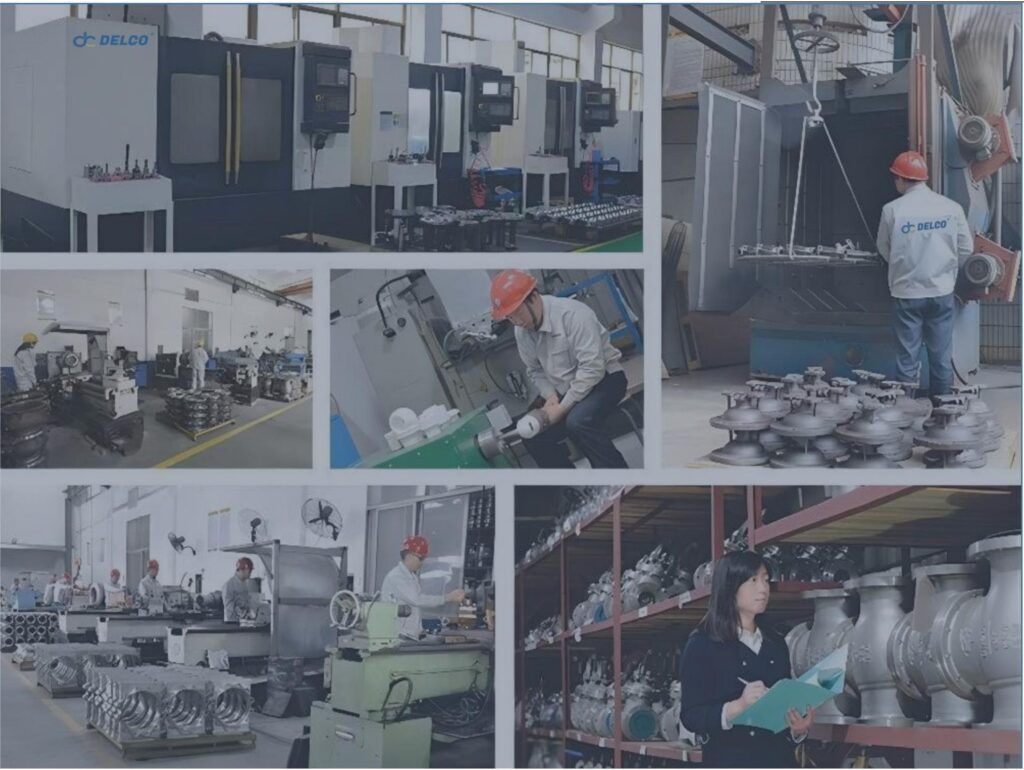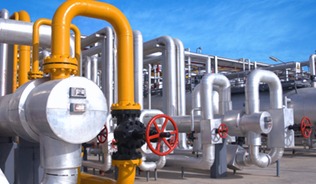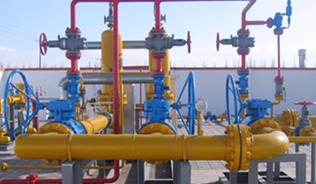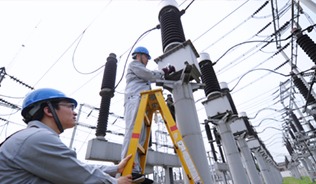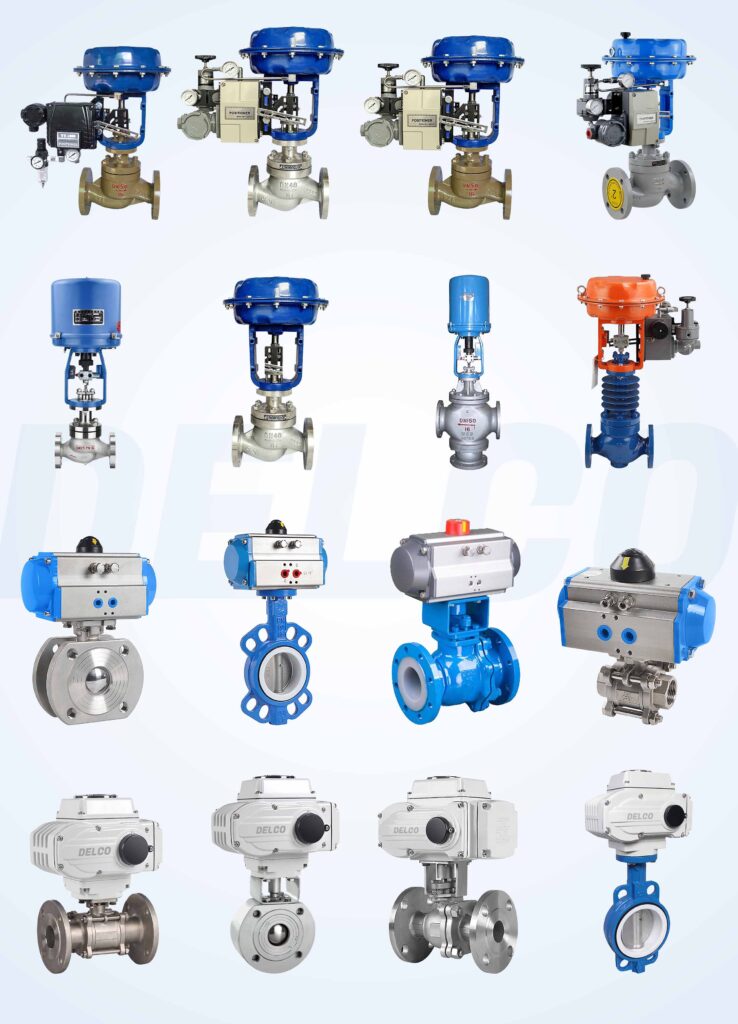Tech Theory: Technical…Practical… Interesting Automation Industrial Solutions

At DELCO, we understand the importance of customer satisfaction and strive to meet the unique needs of every client. As a reliable valve supplier, we are committed to providing excellent customer service and high-quality products to ensure optimal performance and longevity. By choosing DELCO as your trusted control air supplier, you can benefit from customized valve assemblies designed specifically to meet your requirements, enhancing efficiency and reducing downtime.
A quick look at 9 types of industrial valves and applications
This article covers comprehensive information on the types and applications of in dustrial valves. It serves as a comprehensive guide, providing insights into the diverse categories of industrial valves and their respective applications. Whether you are seeking an understanding of valve functionalities or exploring their specific use cases in various industries, this article aims to offer a thorough overview.
Table of contents
- 2 .The basic principles of industrial valves
- 2.1 Definition of the valve
- 2.2 Control valve working principl
- 4. 9 industrial valves commonly used in factories
- 4.1 Globe valve
- 4.2 Butterfly valve
- 4.3 ball valve
- 4.4 Control valve
- 4.5 Safety valve
- 4.6 Check valve
- 4.7 Exhaust valve
- 4.8 Expansion joint valve
- 4.9 Motorized valve
Introduction to Industrial Valves
Industrial valves are vital components in engineering and manufacturing that play a key role in fluid control and process management. These valves come in various designs and applications to meet the needs of different industries and applications. Below is a detailed introduction to industrial valves, from their fundamentals to their main types and wide range of applications.
The basic principles of industrial valves
Definition of Valve
An industrial valve is a device used to control, regulate and direct the flow of a fluid (liquid, gas or powder). These valves usually adjust the fluid passage by opening or closing to achieve flow control or blocking.
Principle of operation of control valves
The basic principle of operation of industrial valves involves the movement of a valve flap or disk that changes the passage of fluid through the valve. Valves can be operated manually or automatically controlled by electric, pneumatic, or hydraulic actuators. The degree of opening and closing of the valve determines the flow or blockage of the fluid.
Industrial valves are used in those industries
Industrial valves are a class of key devices that are widely used in a number of industries, and their main function is to control, regulate and divert fluids to ensure the proper functioning of industrial systems. The following applications of industrial valves in different industries demonstrate their diversity and importance.
Oil and gas industry
In the oil and gas industry, industrial valves are widely used to control and regulate the flow of oil and gas. These valves are used in facilities such as wells, pipeline transportation, storage tanks and refineries to ensure that oil and gas are effectively controlled during production, transportation and processing.
Chemical and chemical industry
In the chemical and chemical industry, industrial valves are used to handle a wide range of chemicals and hazardous substances. They are used to control the flow of fluids during the reaction process and ensure production safety and efficiency in chemical plants.
Power Industry
Power plants use industrial valves to control the flow of steam, cooling water and other fluids. These valves are essential for adjusting the operating parameters of boilers and generators to keep the power system running steadily.
Water Treatment and Wastewater Treatment
In the field of water treatment and wastewater treatment, industrial valves are used to control the flow of fluids in water supply, drainage and treatment processes. The use of valves ensures the proper operation of water treatment facilities, prevents water contamination and maintains treatment efficiency.
Pharmaceutical industry
In the pharmaceutical industry, industrial valves are used to control the flow of liquids in the production of pharmaceutical products. Strict fluid control and hygiene standards require the use of high quality valves to ensure the quality and safety of pharmaceutical products.
Food and beverage industry
Industrial valves play a key role in the production of food and beverages, used to control the flow of liquids during raw materials, mixing, processing and packaging. Hygienic standards place high demands on valves to ensure the safety of the food produced.
Pulp and paper industry
In the pulp and paper industry, industrial valves are widely used to control and regulate the flow of pulp, water and chemicals. Accurate control of valves helps to improve the quality and productivity of pulp.
Iron and steel and metallurgical industry
Industrial valves are used in the steel and metallurgical industries to control the flow of liquid metals, cooling water and other media. The reliability of valves in high temperature and high pressure environments is critical to the proper functioning of these industries.
HVAC industry
In HVAC systems, industrial valves are used to control the flow of coolant and ensure that the temperature and humidity of the building are effectively regulated. The regulating performance of the valves has a direct impact on the energy efficiency and comfort of the system.
The application of industrial valves in these industries covers a wide range of aspects such as production, processing, transportation and handling, providing the necessary fluid control and regulation functions for industrial systems. Its importance in different industries cannot be ignored and plays a key role in the smooth operation of the entire industrial production chain.
9 Types of Industrial Valves Commonly Used in Factories
Industrial valves have a wide range of applications in factories to meet different fluid control needs. Below are a variety of industrial valves commonly used in factories:
Shut-off valves:
Application: Used to cut off or open access to fluids.
Characteristics: Valve flap moves up and down along the direction of fluid flow, providing low resistance.
Butterfly valve:
Application: Mainly used to quickly switch and regulate the fluid.
Characteristics: opened or closed by a circular valve flap rotating around the axis, suitable for large flow occasions.
Ball Valve:
Application: Used to cut off or open the fluid passage, suitable for high pressure and high temperature conditions.
Characterized by a rotating sphere to control the flow of fluid.
Regulating Valves:
Used to precisely regulate the flow, pressure or temperature of a fluid.
Characteristics: Equipped with a control device to dynamically adjust the position of the valve according to system requirements.
Safety Valve:
Application: To prevent overpressurization of the system and to protect equipment and personnel.
Characteristics: Automatically opens when a predetermined pressure is reached, releasing the overpressurized fluid.
Check Valves:
Application: to prevent backflow of fluid, to maintain unidirectional flow.
Characteristics: Usually designed so that the valve flap moves freely in one direction and is obstructed in the other.
Venting Valves:
Application: Used to bleed air from piping systems to prevent air buildup that can lead to cavitation.
Characteristics: Automatically vents air and closes when the fluid reaches a certain pressure.
Expansion joint valve:
Application: Used to absorb deformation caused by thermal expansion or vibration in piping systems.
Characteristics: Has a certain degree of elasticity, can maintain sealing in the pipeline deformation.
Motorized valve:
Application: Control of valves by means of electric motors or solenoid mechanisms to realize remote or automatic operation.
Characteristics: Suitable for systems requiring a high degree of automation and remote operation.
These industrial valves play a key role in factories to ensure the safe, stable and efficient operation of fluid systems. Different types of valves are selected for use according to the specific needs of the plant and fluid characteristics.
The combination and synergy of these components allow control valves to reliably perform fluid control tasks in industrial processes. Different types of control valves may have different component configurations and operating principles.
How to get a quick quote for industrial valves?
Brand is reputation, which not only requires high valve technology, but also great comercial support and fast response after-sales service and delivery time. They will not gamble their brand on an unknown product
If you have questions about valves or want to get a quote, please feel free to contact us, we will reply within 6 hours. Phone +86 159 8960 2972, WhatsApp +86 159 8960 2972 or email marketing [email protected].
DELCO Valve quality, competitive prices and excellent service make it the best valve partner to help you grow your business. Customize your valves, we have no minimum order.
At DELCO, we understand the importance of customer satisfaction and strive to meet the unique needs of every client. As a reliable control valve supplier, we are committed to providing excellent customer service and high-quality products to ensure optimal performance and longevity. By choosing DELCO as your trusted control valve supplier, you can benefit from customized valve assemblies designed specifically to meet your requirements, enhancing efficiency and reducing downtime.
Furthermore, our competitive pricing on electronic pressure regulators enables you to offer top-notch solutions. As one of the leading control valve manufacturers, we take pride in delivering reliable valves that not only meet industry standards but also contribute to the overall profitability of your business. By partnering with DELCO, you can have peace of mind knowing that you are making a wise choice for the long-term success of your company.

